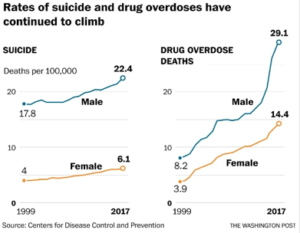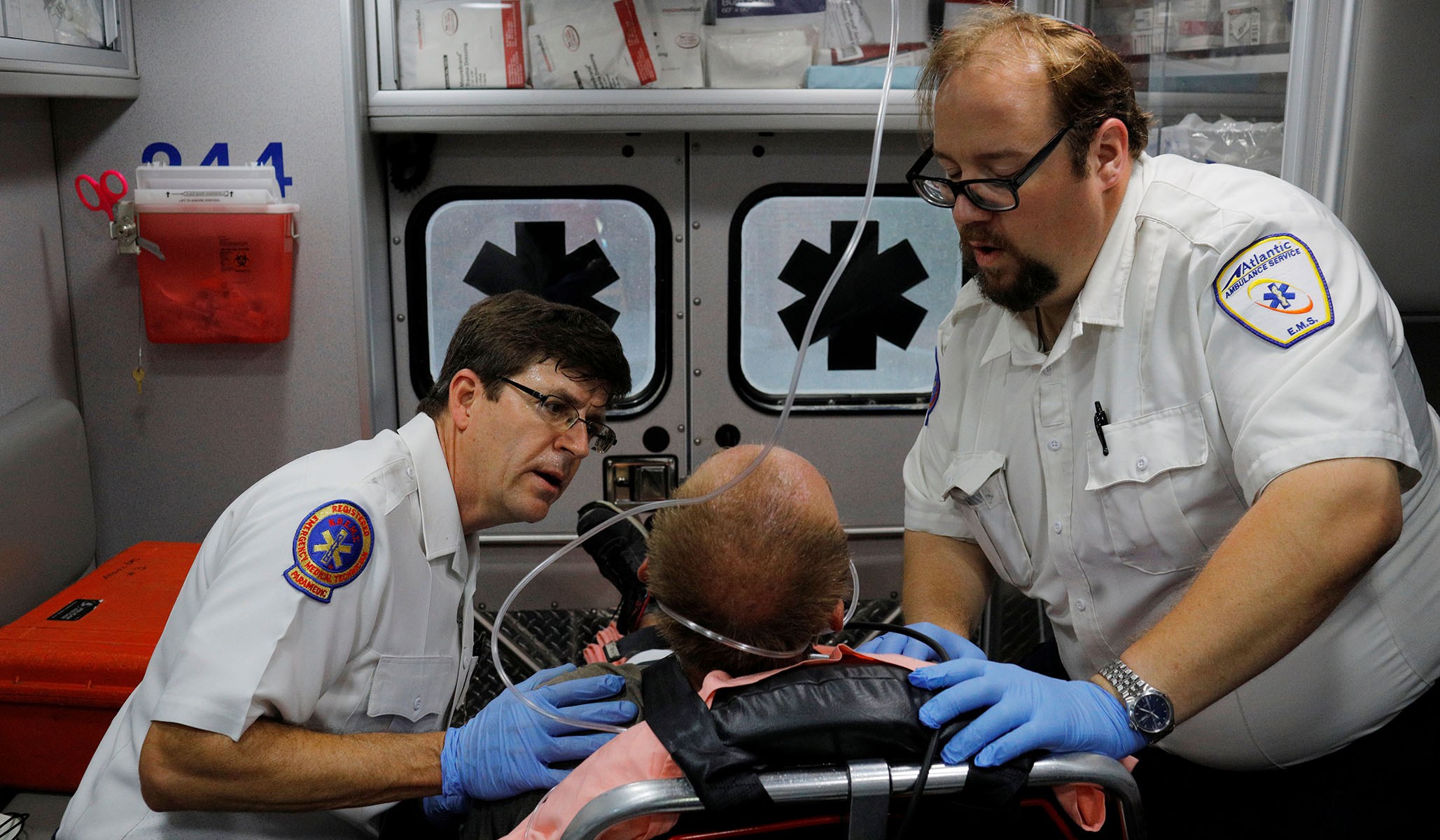By: David French – nationalreview.com – November 29, 2018
The news was expected, but that doesn’t make it any less grim. The Centers for Disease Control and Prevention has released its annual report on American life expectancy, and it’s official — American life expectancy has declined again. As the Washington Post reported, our nation is experiencing the “longest sustained decline in expected life span at birth in a century.”
The last time we faced such profound losses, the United States was both fighting World War I and confronting a flu pandemic that claimed 675,000 American lives.
What is claiming American lives now? Well, it’s not a pandemic. Yes, the flu killed too many Americans in 2017, but cancer deaths continued to decline, and deaths from heart disease leveled off.
Once again, however, tens of thousands of Americans died deaths of despair. Drug-overdose deaths surged to 70,237 — up from 63,632 in 2016 — and suicide deaths continued their terrible, steady increase since 1999. The charts below tell the sad tale:

To put these drug-overdose deaths in perspective, the annual total far outstrips the total American fatalities in Vietnam. The totals are greater, by far, than American peaks in car-crash deaths, gun deaths, and HIV deaths.
And let’s keep in mind that these deaths of despair aren’t coming during a time of major war or recession. In fact, from 2015 to 2017 America enjoyed a period of strong economic growth, declining unemployment, and even a long-awaited rise in wages. While small numbers of American troops are engaged in combat overseas, the average American experiences our present age as a time of peace and prosperity.
Yet still, we are killing ourselves — at a rate that leaves few communities untouched.
This is where our elite obsession with politics fails. Yes, there are political measures that can provide some degree of help. We can double down on drug treatment. We can make sure that first responders have all the necessary tools to immediately treat overdose victims. We must reform our mental-health systems. We can continue to think hard about how we should deal with chronic pain.
But keep in mind a few things. First, overdose deaths continued to increase even as political and legal steps to decrease access to painkillers took effect. Deaths from painkillers and even heroin leveled off. Fentanyl was the big killer in 2017.
Second, it’s hard to blame insufficient access to health insurance for declining outcomes. After all, the American life-expectancy decline began the very year that Obamacare pushed America’s uninsured rate below 10 percent, apparently “for the first time ever.”
Third, politics can do little more than address the symptoms of the spiritual disease of despair. As I’ve said before, there are wounds that public policy cannot heal.
Moreover, the decline isn’t uniform among men and women. If you look closely at the data, you’ll note that in 2017 the overall life expectancy rate decreased in large part because male life expectancy decreased. Female life expectancy was unchanged from 2016.
As I think about the obvious crisis in American men, I’m haunted by this tweet, from Scott Winship at the Social Capital Project:

Scott Winship
@swinshi
Social Capital Project opioids report coming this morning…
6:07 AM – Oct 31, 2017
Look at the stunning disparity in the overdose rate between single and married men — especially single and married men with a high-school diploma or GED only. The collapse of the family has deprived millions of men of the status of being a husband and a father. It has deprived them of the role of provider and protector.
I’m almost 50 years old, and if there is one thing I’ve learned as I’ve watched friends and neighbors of different incomes and different educational levels walk through different stages of life, it’s that countless millions of men simply cannot thrive without a sense of virtuous masculine purpose. Their children cannot thrive without a father, yes, but fathers cannot thrive without their children.
This is an ancient truth. There is a reason why the prophet Malachi included within his description of the “great and awesome day of the Lord” — the day when the “sun of righteousness will rise with healing in its wings” — the promise that God will send Elijah to “turn the hearts of fathers to their children and the hearts of children to their fathers.”
They need each other. One cannot thrive without the other.
[ . . . ]
To see the remainder of this article, click read more.
Source: U.S. Life Expectancy Declining: Time to Tackle Problem
 Listen Online
Listen Online Watch Online
Watch Online Find a Station in Your Area
Find a Station in Your Area







 Listen Now
Listen Now Watch Online
Watch Online
